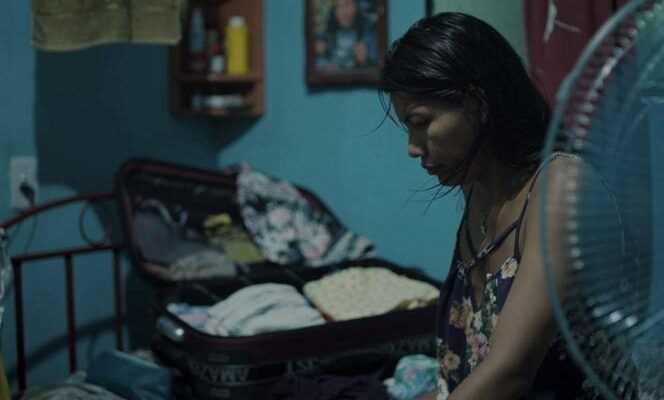THE OPINION OF THE “WORLD” – NOT TO BE MISSED
Brazilian director Maya Da-Rin, born in Rio in 1979, burst onto the international cinema map when her first feature film, Fever, was selected in competition at Locarno in 2019 – the year in which Pedro Costa won the Golden Leopard for Vitalina Varela. Atmospheric work and portrait of an uprooted Native American, Justino (Regis Myrupu), employed in the port of Manaus, Fever received the Fipresci prize and its main actor the male interpretation prize, a remarkable fact for this non-professional actor, coming from a family of shamans and the Desana ethnic group.
It must be said that this film was born from a long work carried out with inhabitants of the upper Rio Negro, in the north-west of the state of Amazonas, where around twenty ethnic groups live together. These men and women share the same vehicular language, Tukano: they consider animals (and other beings) as “peoples” living in the same world as that of men and believe in the relationships between humans, animals and the forest ( Amazonian, in this case). Fever is reminiscent, in another genre, of the beautiful film by Renée Nader Messora and Joao Salaviza Song of the Forest (2019), carried out in an anthropological vein among the indigenous populations of Cerrado, in northeastern Brazil.
Precise everyday mechanics
Maya Da-Rin’s film follows Justino’s geographic and mental journey, between his house on the outskirts and the industrial wasteland full of containers where he works as a security guard. Straight as an i in the port of Manaus, located on the edge of the forest, Justino is filmed as a hunter watching for invisible prey, and the film deploys all its cinematographic power on this hybrid territory, straddling two worlds, Western “modernity” versus the indigenous cultures of the upper rio Negro, no less alive. The choice to accompany Justino’s commuting, to follow his footsteps, his routine, his quiet daily life with his daughter Vanessa (Rosa Peixoto), a young nurse planning to study medicine, arouses in the viewer the strange impression of have known this man for a long time.
It remains to be seen whether the hero will cross the border fence that separates the metal (containers) from the plant (the forest).
If the Brazilian filmmaker installs her precise everyday mechanics with such care, it is only to then upset it with tiny variations. This is how Justino’s face begins to send shifting signals, like a full moon delicately veiling its face, giving clues to the unease that is assaulting him. Justino has a fever, but he doubts the city’s doctors can cure him. His nights are haunted by the pursuit of a wild animal. It remains to be seen whether the hero will cross the border fence that separates the metal (containers) from the plant (the forest).
You have 19.54% of this article left to read. The rest is for subscribers only.
